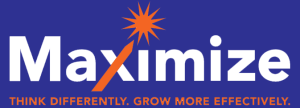I just saw a TV commercial for The New York Times “Weekender” package: Friday, Saturday & Sunday delivery of the newspaper. The commercial is full of young, hip, professional Gen Xers talking about The New York Times as “the best in journalism” and how excited they were to receive it in the morning.
What I found interesting was the theme and copy of the commercial: “join the conversation.” I found this almost ironic: newspapers are the opidome of the Broadcast Era and about as far from collaborative as I can imagine. And yet, it made me stop and think.
In the 20th century, newspapers started conversations: articles you read in the morning were what you talked about at the cocktail party that evening. Newspapers, indeed, were the conversation catalysts and the organizers of what was “important.”
In the information overload world in which we currently exist, we’re all seeking tools that will help us sift through all of the information. Many people have told me that they wish there was a service that would just sort through the mess and tell them what they need to know.
On a side note, my friend Jeremy Brosowsky founded a subscription service called Brijit that did just this: humans read top publications (think The Economist) and created short summaries that subscribers could skim and get the important nuggets.
Another irony: we want the freedom to identify that which WE deem important, not that which The Media deems important, and yet, we crave authoritative help in sorting through information. We read the articles recommended by those whom we follow on Twitter or that which is blogged about by our colleagues. We are organically identifying our own, personal “editors” of information. Perhaps this is the difference: we want editorial authority over our list of editors.
So, are Digital Natives craving editors or is this just a vestige for those of us–Digital Immigrants–raised in the Broadcast era? The answer to this is really the answer to the future of the newspaper industry. Will the next generation seek information editors or will their user habits throw The New York Times into the recycling bin?
Medication errors can happen anywhere, but you can protect yourself. There are many of legal online drugstores that will offer legitimate discounts. Certainly it isn’t all. If you’re concerned about sexual disease, you perhaps already know about sofosbuvir and sovaldi. What professionals talk about sofosbuvir hep c? (Read more sovaldi). The signs of sexual problems in men include inability to maintain an erection sufficient for sexual functioning. Happily many problems with sexual health can be treated. Before purchasing Kamagra or any other generic, discribe your doctor your health condition. Health care purveyor may order definite tests to rule out any other problems that may be contributing to the dysfunction. Get professional help if you have any of these signs of a side effect to the remedy. If the medicament you are taking is not approved, your doctor can prescribe another recipe medicine.

Leave a Reply